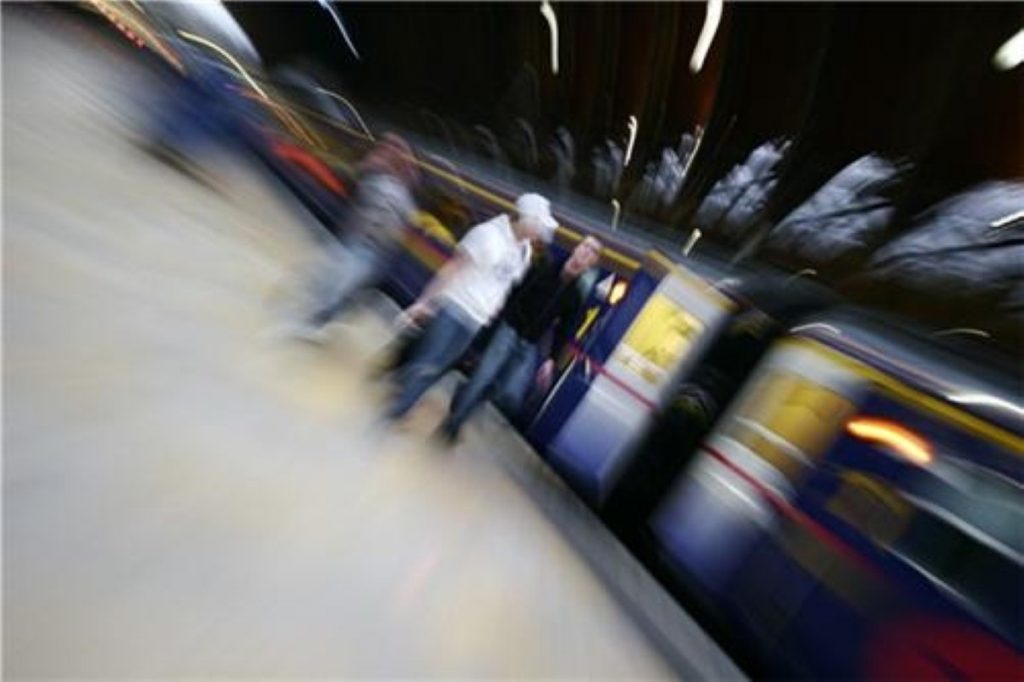MPs shake heads at ‘childish’ high speed rail debate
By Alex Stevenson Follow @alex__stevenson
MPs have told both sides of the high speed rail debate to stop "name-calling" in their report assessing the government's proposals.
Under the controversial plans the high speed network will run north from London to Birmingham before dividing, running up to Manchester in the north-west and Leeds in the north-east.
As the Commons' transport committee notes in its report today, the introduction of trains travelling at 225mph could be a "catalyst for economic growth".


But opponents to the High Speed Two (HS2) project have argued the government's focus on the primacy of shorter journey times at the expense of environmental and other factors.
Former transport secretary Philip Hammond had characterised them as 'Nimbys' – 'not in my back yard' – and 'Luddites'. The Yes to HS2 campaign launched a bus poster campaign with the slogan 'their lawns or our jobs'.
In response the Stop HS2 campaign toured the country with a 10ft inflatable white elephant.
"What should have been a serious and factually-based debate about how best to address the transport, economic and environmental challenges of HS2 has too often been reduced to name-calling and caricature: Luddites, Nimbys and white elephants fought out a battle of 'jobs versus lawns'," MPs noted in their report.
"We urge the government to desist from disparaging opponents of HS2 as Nimbys and for both sides in the debate to show respect for each other and to focus on the facts."
MPs pointed out a number of concerns with the government's current proposals. They called on ministers to fully commit to the 'Y' network before seeking parliamentary approval, make a full assessment of the case for building from north to south and update the economic case for HS2.
"High speed rail may be a catalyst for economic growth, helping to rebalance the economy and bridge the north-south divide," committee chair Louise Ellman said.
"But the government must do more to promote local and regional growth strategies to ensure we get maximum economic benefit from high speed rail."
The report attracted support from the opposition benches. Labour ministers had made the initial proposals for the high speed rail network.
"There is a growing consensus that Britain needs to seize the opportunities that high speed rail can bring, but also a determination that the precise scheme we adopt must deliver the best possible economic benefits," shadow transport secretary Maria Eagle said.
"I therefore welcome the fact that the transport select committee's report reaches the same conclusions as our own policy review and finds that the existing proposals can be improved.
"Ministers must now consider these issues very carefully before they come forward with their final proposals so that we can move forward on a cross party basis with this vital project."
The Stop HS2 campaign offered a very different interpretation of the report, however. They said its long list of steps the government still needed to take meant it had delivered a "scathing" assessment.
"The entire business case for HS2 is propped up by the voodoo economics principle of actually working out a cash value for 'time is money', something which the committee state is 'disappointing'," campaign coordinator Joe Rukin commented.
"They have spotted that HS2 is not part of an integrated solution, that it does not form part of any wider strategy, and that if HS2 is to work in terms of providing any wider economic benefits there has to be massive additional investment to make that happen, but there is no plan of how all of that would happen as well."
The Department for Transport said the report showed the need for a high speed rail network in Britain.
"The report provides a useful contribution to the debate on high speed rail, and echoes a number of the messages coming out from the responses to the public consultation," a spokesperson said.









